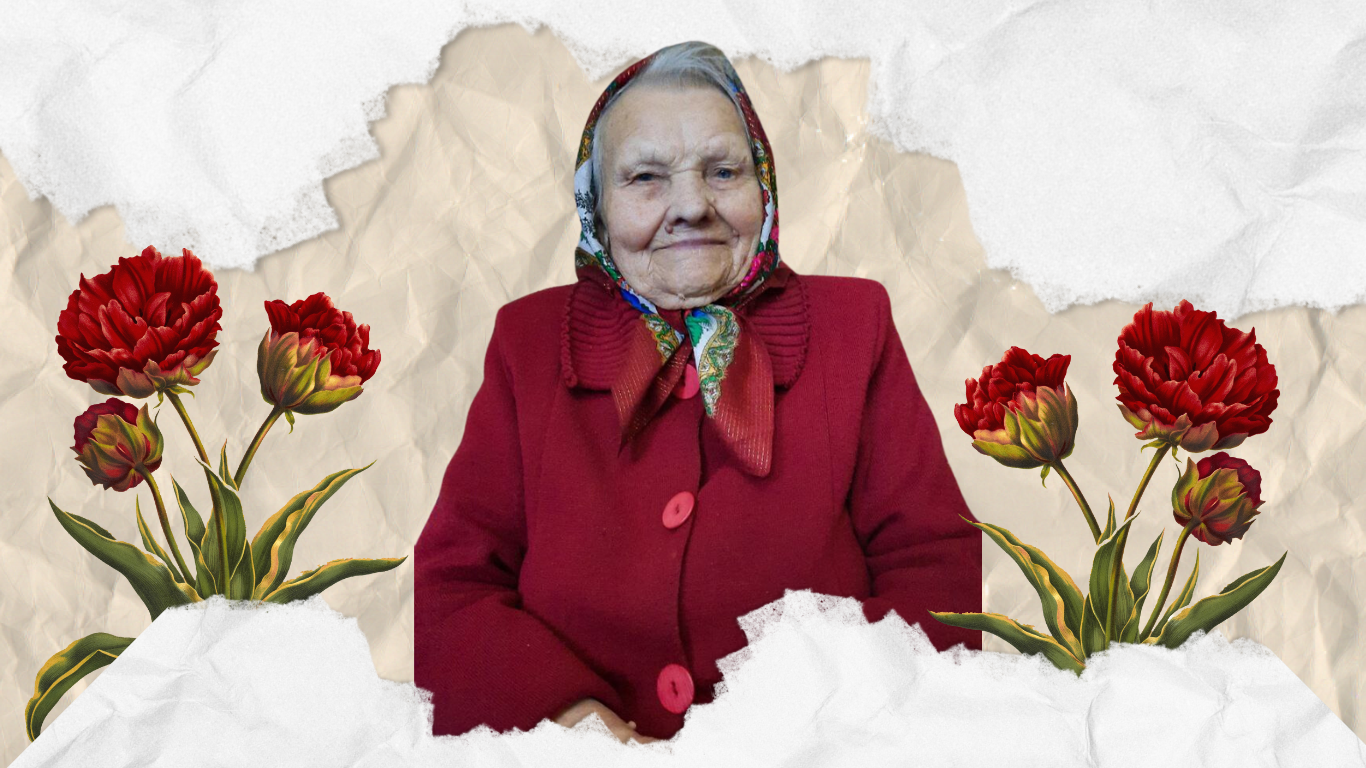The Holodomor Museum recorded the testimony of 100-year-old Nina Kolomatska
On the 22nd of February 22, the staff of the Holodomor oral history department, Yulia Kotsur and Sofia Diachenko, visited the Kyivan Nina Fedorivna Kolomatska, who celebrated her 100th birthday on the 1st of February.
Nina Fedorivna (née Miloserdova) comes from the village of Komisarivka (since 2016 – Prymorske) of Henichesk District, Kherson Region. In the 1930s, the family was dekulakized and sent to the Urals. In 1935, the family dared to escape and returned to the neighbouring village – Partizany station. But already in 1937, the head of the family, Fedir Myloserdiv, was arrested – as Ms Nina says, “he himself did not know for what reason”, and by the decision of the “troika” he was sentenced to 10 years in the camps. The father did not return from there – he died in a foreign land. During World War II, Nina Fedorivna was taken to Germany for forced labour. After returning to Ukraine, she experienced another famine in 1946-1947.
Her story is full of pain and sadness for the destroyed family life:
“No one wanted to join the collective farm and give their own property… They tried to resist – they dug and hid. But those found. Everything was taken away, and the person was sent to prison! – Ms Nina recalls. – My father did work on a collective farm, but he was sent to the North, to the Far East too. There he paved the road to Lake Khasan. This is the Chelyabinsk Region, Urals.
And in May 1931, we were also sent there – five children and our mother. We were the first ones from the village. Everything was taken… We were not allowed to take anything with us: no clothes, no food. We were taken on a cart, and weapons were lying nearby so that no one would run away.
My grandfather and grandmother stayed at home. They died of hunger… Many people in the village died. Fish saved people because they lived near the sea. And so people came to exchange something for fish… They carried, carried – and died.
… God forbid, how many people were in exile!
They opened mines and worked on them. They lived in “huts” made of wood. The rains were heavy, the dampness was strong, and our whole family at one point fell ill with malaria…
There was nothing to eat in exile – people were starving. But it was possible to earn something, so some people saved up… They saved up for a cow or a horse… And then they were dekulakized again anyway! They took everything and sent it to another place.
We were also starving at first, and then we took land in the forests and cultivated it. We got payments in money, there were even bonuses… Both old and young worked. And women. Everything was done by hand. I remember a woman raking the ground with a shovel.
And in 1935, we fled from there back to the Motherland. We checked in at 11 in the evening – and immediately went to the forest. There, we paid to the one whom it was necessary – to the same “kulaks” like us. (Among those expelled were Bulgarians and Germans, but mostly Ukrainians). We received some help: they got tickets for us, put us on the train… That’s how we got there.
And there was nothing left at home – everything was taken away. So we dug a dugout and lived in it.
All the same, Ukrainians returned to Ukraine. Not anywhere but Ukraine. Because it’s Motherland…”
Soon, the entire impressive story of Nina Kolomatska will be available on our online resource “Testimony”.
